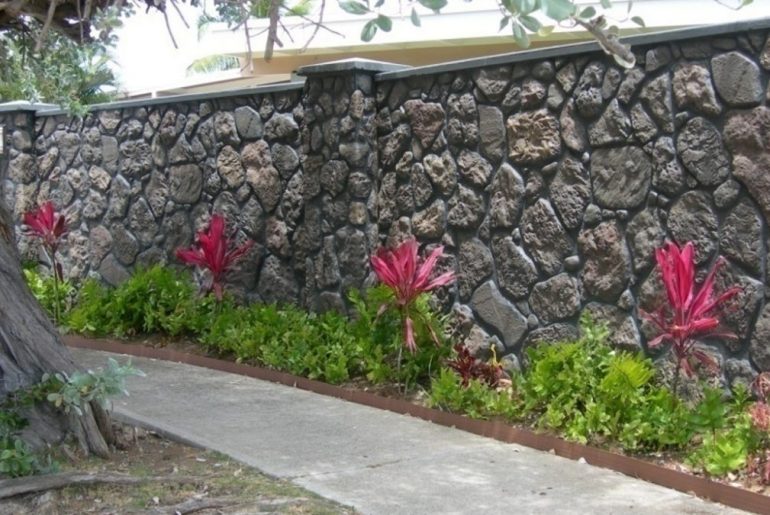Choosing a Fencing Material for Your Garden
There are several long-term benefits you’ll enjoy from protecting your garden with rocks or other building materials. They protect your garden from weed overgrowth, erosion, demarcate your garden and also beautify it. A unique fencing material also adds value to your property.
In this article, we’ll discuss at length two suitable types of fence materials for your garden. Suppose you already know about these materials and are finding it tricky to choose the most suitable one. In that case, we’ll make the process easier by providing you with the upsides and downsides of these materials. Please, enjoy!
Why Lava Rock?
Lava rock is also known as volcanic rock and has numerous advantages when you use it as a landscaping material. Some of them include:
Durability:
You’ll undoubtedly enjoy constructing a fence fashioned from lava rocks around your garden because it lasts long. They are made from solidified lava, which means they’ll be on your property for as long as you want while requiring little to no maintenance.
Aesthetically Appealing:
Lava rocks are aesthetically appealing with their bright colors. They typically come in black or red shades, and you can combine both colors to give your fence a mesmerizing appearance. They make a solid statement and maybe just what your home needs to attain perfection.
Reasonable Weight:
These rocks have the right weight, which means they aren’t too heavy or light. They’re pretty porous too, which means they’ll not keep air from your property. The lightness of lava rocks also makes it easy for you to lay the fence yourself.
Downsides: Lava rocks have numerous sharp edges, making it challenging to clean them without getting scratched. They’re also quite challenging to move once laid in place because they weigh a lot. Lastly, they absorb heat, which could be a problem when they retain and release it at night, thereby drying up the water supply in the soil.
Why Stone?
Alternatively, the stone may be a better choice for you for several reasons. Some of them include:
Cost Friendly:
Stones are pretty easy to find, and this means that you’ll have little to no difficulty purchasing the right amount for your garden. You’ll also have to pay less for them.
More Permanent:
Stone fences do not disintegrate or change color. They’ll also not get blown away by the wind; once they’re set in place, stone fences remain that way until you decide to replace them.
Environmentally Friendly:
This is a more environmentally friendly option, as the formation of stones leaves positive effects on the environment. Stone fences are also made from purely natural materials.
Downsides:
A stone fence requires plenty of time for construction, and its durability may later become a problem, especially when you’re looking to replace or relocate it. The physical appearance of a stone fence cannot also be easily changed; you cannot paint it to give it a different appeal.
In Conclusion
When choosing fencing materials, you have to carefully weigh your options to avoid having a long-term but dissatisfactory project on your hands. For any more information on these specific masonry skills visit https://www.honolulu-concrete.com/masonry.html.

